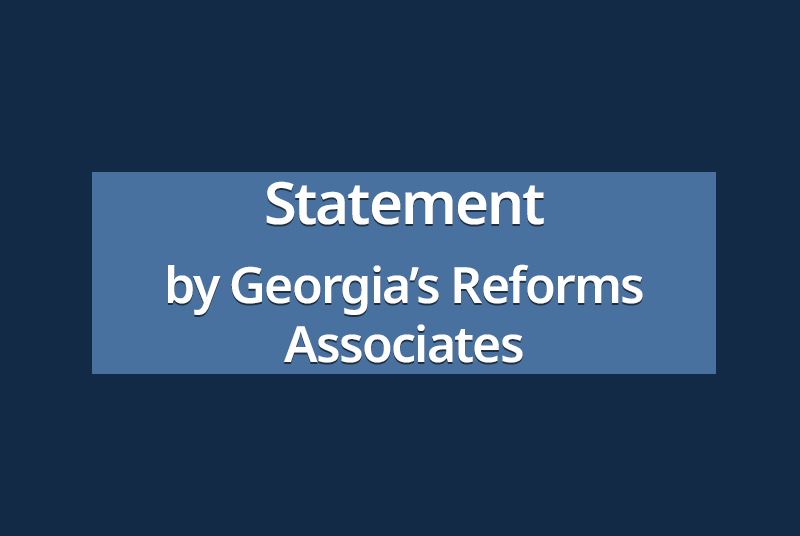The statement issued by Civil Society Organizations working in the area of Peacebuilding

07 December, 2023
0
We would like to echo the ongoing discussions on whether or not there should be a dialogue between Tbilisi and Sokhumi.
We are confident that the dialogue between Georgian and Abkhaz (as well as Georgian and Ossetian) societies at different levels, with the participation of various stakeholders and groups, is crucial. The substantial discussions may touch upon a range of issues, such as the development of trade relations across the divides, expansion of quality education opportunities for the youth, free movement of people, and many other essential topics that would serve the interests of the conflict-affected population. Discussing the benefits of the European integration within the inter-community dialogue is also important.
Such dialogue cannot and should not be considered an alternative to or a substitute for the official international format (Geneva International Discussions). Informal, multidimensional dialogue, e.g., in the so-called "1.5 track" format, does not represent diplomatic meetings between officials but is instead an informal set-up for experts, civil society representatives, and decision-makers as needed to discuss the issues of common interest, which sometimes cannot be solved within official formats due to their undue politicization. It is also important to involve decision-makers while discussing social, economic, humanitarian, or human rights-related issues pertaining to common interests.
Georgian-Abkhaz (and Georgian-Ossetian) dialogue by itself will not lead to the political solution of the conflict in Georgia, but it is crystal clear that the peaceful conflict resolution process can neither be successful without public diplomacy and dialogue between the interested stakeholders. International experience also proves that peace-building and result-oriented dialogue have no alternatives, notwithstanding the pain and tragedy of the past. Progress on humanitarian, economic, or social issues achieved within the dialogue will largely contribute to breaking the image of the "enemy," developing people-to-people contacts, and preparing a favorable ground for societies' future prosperity and peaceful coexistence.
We consider the dialogue issue the subject of broad public consensus and express our readiness to facilitate this process.
7 December 2023
Civil Society Organizations aligned to the Statement:
Georgia’s Reforms Associates (GRASS)
Coalition for IDP Rights
Research-Intellectual Club "Dialogue of Generations"
Social Justice Centre
Democracy Research Institute (DRI)
Centre for Cultural Relations – Caucasian House
“Start now”
Human Rights Centre (HRC)
International Centre for Geopolitical Studies
Mtskheta-Mtianeti Regional Hub
Charity Humanitarian Centre „Abkhazeti“ (CHCA)
Union “Tskhinvali of the Future”.
Institute of the Study of Nationalism and Conflicts
Studio Re
Fund “Sokhumi”
International Center on Conflict and Negotiation
IDP Women Association "Consent"
Movement for Abkhazia
Levan Mikeladze Foundation
New Visions – New Horizons
Go Group Media
Association “Agora”
Georgian Tea Producers Association
Center for Peace and Civic Development (CPCD)
Union of Teachers “Education end Universe”
Caucasus Institute for Peace, Democracy and Development
"Peaceful and Business Caucasus”
“Caucasian Mosaic”
“Caucasus Dialogue”
Paata Zakareishvili
Guram Odisharia
Marina Pagava
Meri Gelashvili
Lia Chlachidze
Rusudan Marshania



